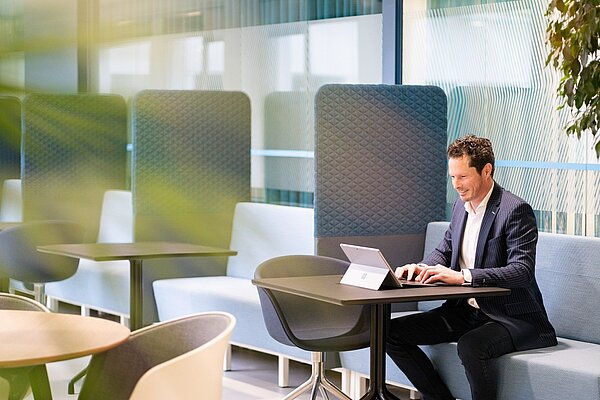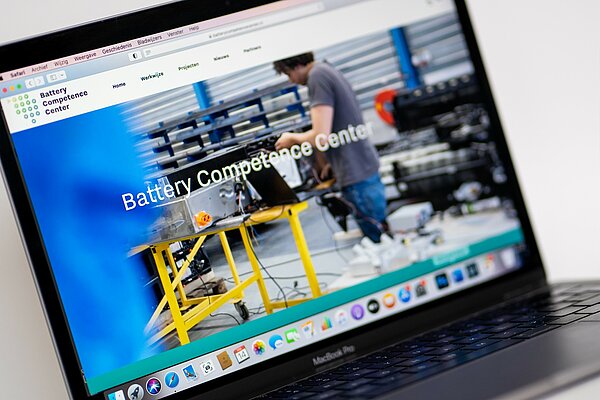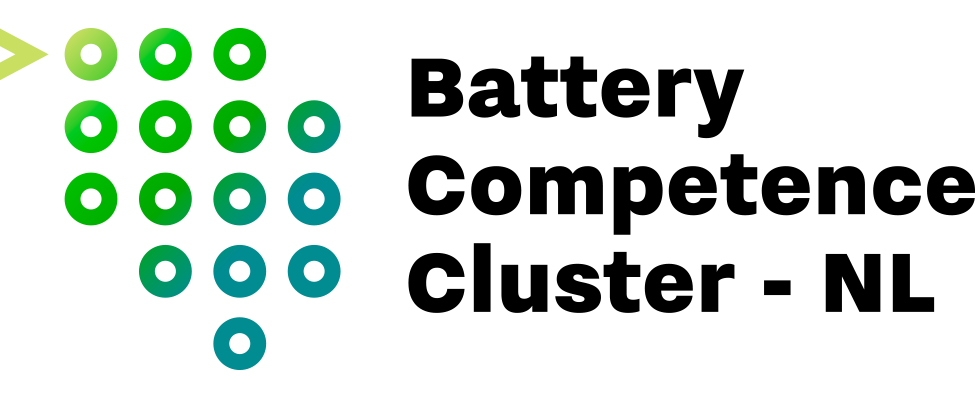Making mobility greener with the Battery Competence Center

Interview with Rutger van Poppel, program manager at Brainport Development
Battery technology will undergo explosive development in the years to come. Presenting major opportunities for Dutch companies to serve this market. By working together in the development of knowledge and skills, we can create national impact within global demand. That is why the Battery Competence Center has been established, a national innovation program in which companies, knowledge institutes and public authorities join their forces to seize and accelerate the opportunities presented in the battery industry. Rutger van Poppel, prgoram manager at Brainport Development tells us more about the Battery Competence Center.

Who are you?
My name is Rutger van Poppel and I am working as prgoram manager for the Battery Competence Center, a program which is supported by Brainport Development. As the program manager, I am responsible for coordinating various activities, further developing the program and developing new partnership projects.
I first got to know Brainport during my internship assignment. Meanwhile, I have been working for this beautiful organization for four years now. In the beginning, I was involved in setting up international collaborations and forging connections with other regions.
The past two years, I fully focused on the battery theme. This included the development of an ecosystem and positioning for example. We are actively searching for the right partnerships for new projects to develop the necessary knowledge, and we are involving companies, knowledge institutes and public authorities in these partnerships.
The great thing about this topic is that batteries can have an enormous impact on the region, as did the microchip industry with AMSL at its center. By combining the available knowledge, we can also take the lead in battery technology. In the development and manufacturing of machines needed for the production of batteries for example. Or in the manufacturing of heavier electric vehicles.
What does the Battery Competence Center do and what are you currently working on?
The Battery Competence Center is an innovation program in which we work with companies, knowledge institutes and public authorities. The goal is to develop knowledge and skills to strengthen the battery manufacturing industry. We are not only aware of the urgency to do this, but also see major opportunities for startups for example, to serve this market. Large companies like DAF and VDL, or parties in the maritime sector like Damen Shipyards, are faced with the challenge to make the transition from combustion engines to batteries. They can only continue to deliver a good end product, if they have sufficient substantive knowledge of batteries. There are also great opportunities for new battery companies, to become the new ASMLs of the Netherlands. We can only seize these opportunities by joining our forces and by working together. Ultimately, this will significantly help in accelerating the energy transition.

The Battery Competence Center has an overarching, independent role. We present a united voice for the entire Dutch battery chain and make sure that multi-year projects are being launched. We do that on behalf of all individual parties. The first project within the BCC is being subsidized by the EU, the Dutch government and the province of North-Brabant. The project will initially focus on heavy transport such as buses, trucks and ships. The resulting pilot lines focus on manufacturing and circular or innovative designing for specific battery pack applications. The next step is large-scale production, smarter battery systems and recycling. A second project called Green Transport Delta - Electrification has already been launched for this purpose.
As a program office, we coordinate these different projects and develop new ones. Collectivity is very important for the organizations that join the program; they are looking for partnerships and are propagating this collectivity. We, the program office, are the linking pin between public and private parties. Thanks to the significant importance, we as Competence Center hold a strong position when communicating with public authorities and when bundling investments. In the future, we also want to forge international connections.

In what way are you helping to solve the worldwide challenges?
It is important that we make the mobility sector greener. The faster we do that, the better. When we know more about batteries, we will be able to use them in a smarter way. We learn the best way to use them for example or how to extend their lives. All these things help us develop better, more sustainable batteries, or products that contain those batteries, such as buses, trucks and boats.
When designing the battery pack, we should take better account of the idea that such battery also needs to be disassembled and recycled. And that the raw materials are extracted or reused in a more sustainable way. For example, by recovering the raw materials you use yourself, you are producing your own raw materials. This way, we can create a circular supply chain in the future.
What will the impact of this innovation be in the Netherlands?
The VDL buses and DAF trucks are a good example. They are manufactured and used in the Brainport region. VDL was frontrunner by, jointly with Heliox, setting up a charging station years ago and by implementing urban electric transport at a large scale in the region. Meanwhile, the Netherlands is leading in the use of electric buses in public transport. This shows that innovations that are developed locally thanks to the open innovation ecosystem, are most often also first used here. And what is also great: those vehicles that are manufactured in the Netherlands and that will also contain Dutch battery technology in the future, can eventually be seen worldwide. This is a development we will also see to a larger extent in ships, industrial and agricultural machinery and even in aircrafts.
Ultimately, battery innovations can have a tremendous impact on the employment in and economic growth of the region.
What parties do you want to work with to achieve success? And what are the specific topics people can contact you for?
Anyone doing something, or who can do something in terms of battery technology innovation is welcome. We are already working with a lot of parties. We started with nine founding partners, and we are expanding the network with new projects and collaborations.
Fortunately, there are many parties that contact us through the website or via LinkedIn, which is great. We are also looking for companies that have specific research questions and that want to work together. This way, we can jointly develop knowledge and skills to realize beautiful projects together. The University of Twente and the Technical University of Delft, for example, have great research teams that are researching the chemistry in the battery cell. We are already working together, but that cooperation could be more intensified. That is something I want to focus on this year.
As program coordinator, I am the point of contact for information about the program, its further development and new cooperation projects. Companies from the maritime sector can best contact NMT directly, and the automotive industry can contact RAI Automotive Industry NL.
